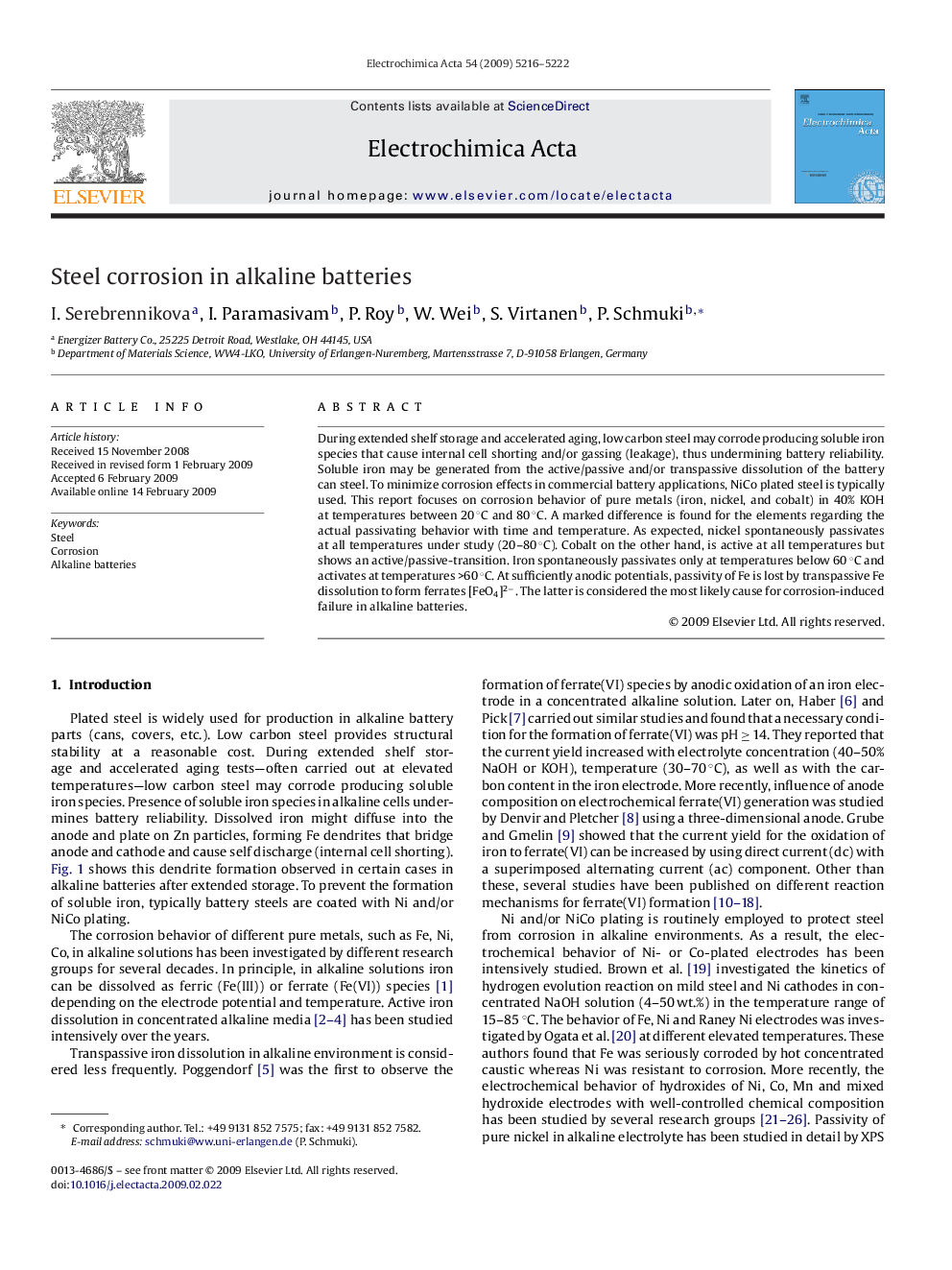| Article ID | Journal | Published Year | Pages | File Type |
|---|---|---|---|---|
| 193405 | Electrochimica Acta | 2009 | 7 Pages |
During extended shelf storage and accelerated aging, low carbon steel may corrode producing soluble iron species that cause internal cell shorting and/or gassing (leakage), thus undermining battery reliability. Soluble iron may be generated from the active/passive and/or transpassive dissolution of the battery can steel. To minimize corrosion effects in commercial battery applications, NiCo plated steel is typically used. This report focuses on corrosion behavior of pure metals (iron, nickel, and cobalt) in 40% KOH at temperatures between 20 °C and 80 °C. A marked difference is found for the elements regarding the actual passivating behavior with time and temperature. As expected, nickel spontaneously passivates at all temperatures under study (20–80 °C). Cobalt on the other hand, is active at all temperatures but shows an active/passive-transition. Iron spontaneously passivates only at temperatures below 60 °C and activates at temperatures >60 °C. At sufficiently anodic potentials, passivity of Fe is lost by transpassive Fe dissolution to form ferrates [FeO4]2−. The latter is considered the most likely cause for corrosion-induced failure in alkaline batteries.
